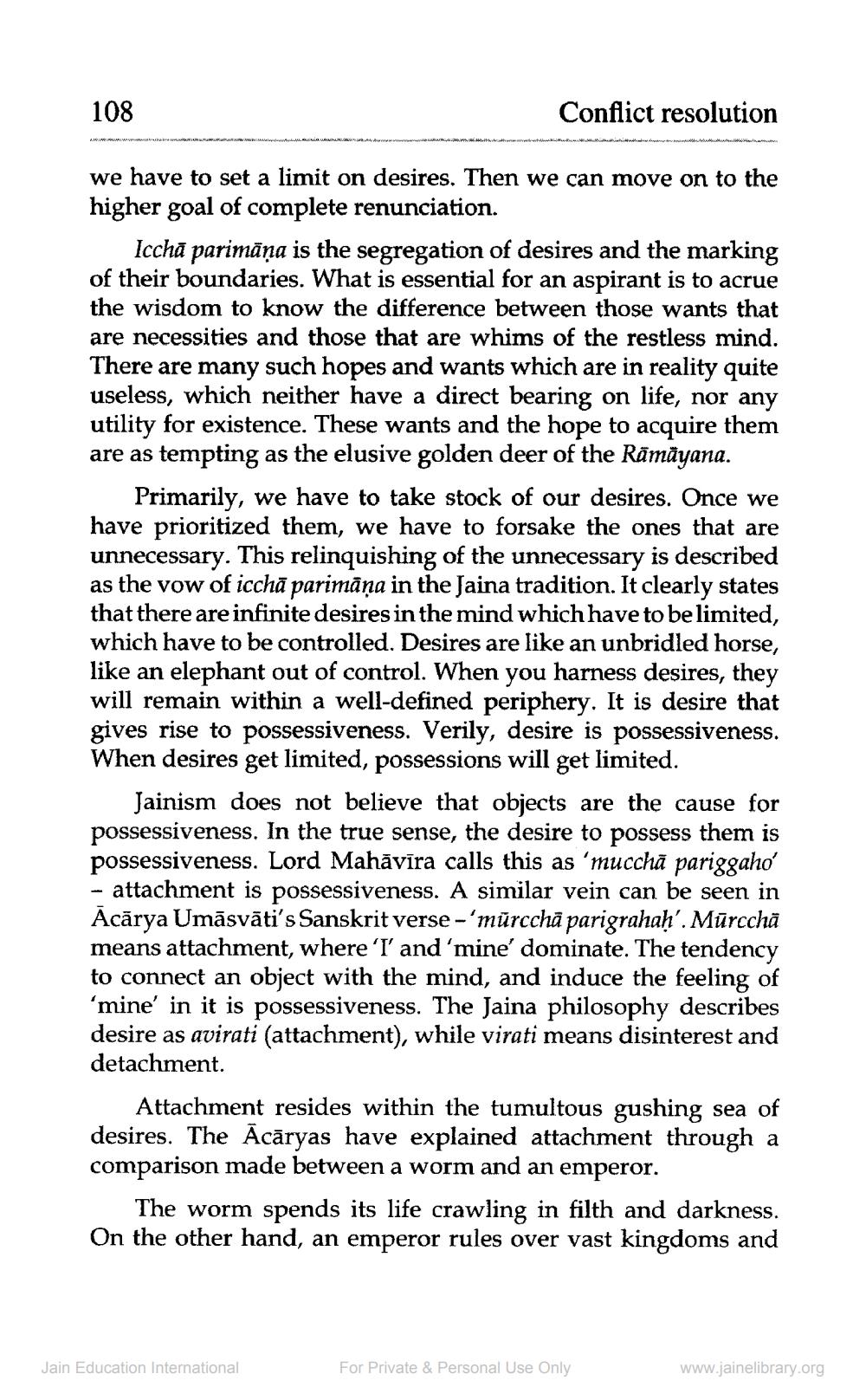________________
108
Conflict resolution
we have to set a limit on desires. Then we can move on to the higher goal of complete renunciation.
Iccha parimāņa is the segregation of desires and the marking of their boundaries. What is essential for an aspirant is to acrue the wisdom to know the difference between those wants that are necessities and those that are whims of the restless mind. There are many such hopes and wants which are in reality quite useless, which neither have a direct bearing on life, nor any utility for existence. These wants and the hope to acquire them are as tempting as the elusive golden deer of the Rāmāyana.
Primarily, we have to take stock of our desires. Once we have prioritized them, we have to forsake the ones that are unnecessary. This relinquishing of the unnecessary is described as the vow of icchā parimāņa in the Jaina tradition. It clearly states that there are infinite desires in the mind which have to be limited, which have to be controlled. Desires are like an unbridled horse, like an elephant out of control. When you harness desires, they will remain within a well-defined periphery. It is desire that gives rise to possessiveness. Verily, desire is possessiveness. When desires get limited, possessions will get limited.
Jainism does not believe that objects are the cause for possessiveness. In the true sense, the desire to possess them is possessiveness. Lord Mahāvīra calls this as 'mucchā pariggaho' - attachment is possessiveness. A similar vein can be seen in Acārya Umāsvāti's Sanskrit verse -'mūrcchā parigrahah'. Mūrcchā means attachment, where ‘l' and 'mine' dominate. The tendency to connect an object with the mind, and induce the feeling of ‘mine' in it is possessiveness. The Jaina philosophy describes desire as avirati (attachment), while virati means disinterest and detachment.
Attachment resides within the tumultous gushing sea of desires. The Ācāryas have explained attachment through a comparison made between a worm and an emperor.
The worm spends its life crawling in filth and darkness. On the other hand, an emperor rules over vast kingdoms and
Jain Education International
For Private & Personal Use Only
www.jainelibrary.org




